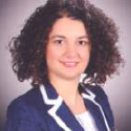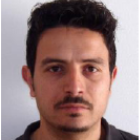International Journal of Modern Education and Computer Science (IJMECS)
IJMECS Vol. 16, No. 5, 8 Oct. 2024
Cover page and Table of Contents: PDF (size: 769KB)
Igniting Curiosity: The Role of STEAM Education in Enhancing Early Academic, Language Skills and Motivation for Science
PDF (769KB), PP.1-20
Views: 0 Downloads: 0
Author(s)
Index Terms
STEAM Education, early childhood development, academic skills enhancement, scientific motivation, integrative learning approaches
Abstract
The "Igniting Curiosity: A STEAM Journey for Young Minds" (IC-SJYM) program integrates Science, Technology, Engineering, Art, and Mathematics (STEAM) into early childhood education to enhance linguistic and scientific engagement among 5 to 6-year-olds. This study uses a mixed-methods design to evaluate the program's effectiveness, utilizing the Kaufman Survey of Early Academic and Language Skills (K-SEALS) and the Teacher Rating Scale of Children's Motivation for Science (TRS-CMS), alongside qualitative feedback from educators. Results show that the experimental group, following the IC-SJYM program, demonstrated significant improvements in academic performance and motivation towards science compared to a control group with a traditional curriculum. Additionally, qualitative analyses highlight the program's positive impact on expressive language skills, innovative thinking, and a sustained interest in scientific inquiry. These findings suggest that an integrative STEAM curriculum can significantly enhance early learning experiences, advocating for its broader adoption. The IC-SJYM program's success in fostering intellectual curiosity and academic excellence underscores the critical role of STEAM in early childhood education and calls for further research into its potential to revolutionize educational paradigms for young learners.
Cite This Paper
Özgün Uyanık Aktulun, Ümit Ünsal Kaya, Ali İbrahim Can Gözüm, Michail Kalogiannakis, Stamatios Papadakis, "Igniting Curiosity: The Role of STEAM Education in Enhancing Early Academic, Language Skills and Motivation for Science", International Journal of Modern Education and Computer Science(IJMECS), Vol.16, No.5, pp. 1-20, 2024. DOI:10.5815/ijmecs.2024.05.01
Reference
[1]Gu, J.; Belland, B.R. Preparing Students with 21st Century Skills: Integrating Scientific Knowledge, Skills, and Epistemic Beliefs in Middle School Science Curricula. In Emerging Technologies for STEAM Education; Ge, X., Ifenthaler, D., Spector, J.M., Eds.; Switzeralnd: Springer, 2015; pp. 39–60.
[2]Lindeman, K.W.; Jabot, M.; Berkley, M.T. The Role of STEM (or STEAM) in the Early Childhood Setting. Learning across the Early Childhood Curriculum In K; Lindeman, W., Ed.; Emerald Group Publishing Limited: Leeds, England, 2014;
[3]Sharapan, H. From STEM to STEAM: How Early Childhood Educators Can Apply Fred Rogers’ Approach. YC Young Child. 2012, 67, 36.
[4]Perignat, E.; Katz-Buonincontro, J. STEAM in Practice and Research: An Integrative Literature Review. Think. Ski. Creat. 2019, 31, 31–43.
[5]Shernoff, D.J.; Sinha, S.; Bressler, D.M.; Ginsburg, L. Assessing Teacher Education and Professional Development Needs for the Implementation of Integrated Approaches to STEM Education. Int. J. STEM Educ. 2017, 4, 1–16.
[6]Weinberg, A.E.; Balgopal, M.M.; Sample McMeeking, L.B. Professional Growth and Identity Development of STEM Teacher Educators in a Community of Practice. Int. J. Sci. Math. Educ. 2021, 19, 99–120.
[7]T.I.M.M.S. TIMMS 2019 Türkiye raporu.Availeble online 2019.
[8]P.I.S.A. PISA 2022 Türkiye raporu.Available online 2022.
[9]Bowman, M.A.; Vongkulluksn, V.W.; Jiang, Z.; Xie, K. Teachers’ Exposure to Professional Development and the Quality of Their Instructional Technology Use: The Mediating Role of Teachers’ Value and Ability Beliefs. J Res Technol Educ 2022, 54, 188–204.
[10]Dogan, S.; Dogan, N.A.; Celik, I. Teachers’ Skills to Integrate Technology in Education: Two Path Models Explaining Instructional and Application Software Use. Educ Inf Technol 2021, 26, 1311–1332.
[11]Wilson, M.L.; Ritzhaupt, A.D.; Cheng, L. The Impact of Teacher Education Courses for Technology Integration on Pre-Service Teacher Knowledge: A Meta-Analysis Study. Comput Educ 2020, 156, 103941.
[12]Beitchman, J.; Brownlie, E. Language Development and Its Impact on Children’s Psychosocial and Emotional Development. Encycl. Early Child. Dev. 2005, 1–7.
[13]Gözüm, A.İ.C.; Uyanık Aktulun, Ö.U. Relationship between Pre-Schoolers’ Self-Regulation, Language, and Early Academic Skills: The Mediating Role of Self-Regulation and Moderating Role of Gender. Curr Psychol 2021, 40, 4718–4740.
[14]Osborne, J. Science education for the twenty-first century. Eurasia J Math Sci Technol Educ 2007, 3, 173–184.
[15]Gibbons, P. Scaffolding Language, Scaffolding Learning; Heinemann: Portsmouth, NH, 2002;
[16]Smit, J.; Chisari, L.B.; Kouns, M.; Øyehaug, A.B.; Savelsbergh, E.; Hajer, M.I.S.T.E.M. Inclusive STEM Teaching from a Language Perspective: Teacher Learning in a Professional Development Program. Eur. J. STEM Educ. 2023, 8, 1–15.
[17]García, O.; Wei, L. Translanguaging, bilingualism, and bilingual education. In The Handbook of Bilingual and Multilingual Education; 2015; pp. 223–240.
[18]Schleppegrell, M.J. The Language of Schooling: A Functional Linguistics Perspective; Routledge, 2004;
[19]Vygotsky, L.S. Thought and Language; MIT Press: Cambridge, MA, 1962;
[20]Purpura, D.J.; Reid, E.E. Mathematics and Language: Individual and Group Differences in Mathematical Language Skills in Young Children. Early Child. Res. Q. 2016, 36, 259–268.
[21]Silburn, S.; Nutton, G.; McKenzie, J.; Landrigan, M. Early Pathways to School Learning: Lessons from the Northern Territory Data Linkage Study. Learn. Communities Int. J. Learn. Soc. Contexts 2018, 23, 12–24.
[22]Bierman, K.L.; Nix, R.L.; Greenberg, M.T.; Blair, C.; Domitrovich, C.E. Executive Functions and School Readiness Intervention: Impact, Moderation, and Mediation in the Head Start REDI Program. Dev. Psychopathol. 2008, 20, 821–843.
[23]Justice, L.M.; Mashburn, A.J.; Pence, K.L.; Wiggins, A.K. Experimental Evaluation of a Preschool Language Curriculum: Influence on Children’s Expressive Language Skills. J. Speech Lang. Hear. Res. 2008, 51, 983–1001.
[24]Whitehurst, G.J.; Epstein, J.N.; Angell, A.L.; Payne, A.C.; Crone, D.A.; Fischel, J.E. Outcomes of an Emergent Literacy Intervention in Head Start. J Educ Psychol 1994, 86, 542.
[25]LeFevre, J.A.; Liu, J. The Role of Early Language Abilities on Math Skills among Chinese Children. PLOS ONE 2017, 12, 0181074.
[26]Vansteenkiste, M.; Sierens, E.; Soenens, B.; Luyckx, K.; Lens, W. Motivational Profiles from a Self-Determination Perspective: The Quality of Motivation Matters. J. Educ. Psychol. 2009, 101, 671–688.
[27]Andre, T.; Whigham, M.; Hendrickson, A.; Chambers, S. Competency Beliefs, Positive Affect, and Gender Stereotypes of Elementary Students and Their Parents about Science versus Other School Subjects. J Res Sci Teach 1999, 36, 719–747.
[28]Beghetto, R.A. Factors Associated with Middle and Secondary Students’ Perceived Science Competence. J Res Sci Teach 2007, 44, 800–814.
[29]Britner, S.L.; Pajares, F. Sources of Science Self‐efficacy Beliefs of Middle School Students. J Res Sci Teach 2006, 43, 485–499.
[30]Marsh, H.W.; Trautwein, U.; Lüdtke, O.; Köller, O.; Baumert, J. Academic Self‐concept, Interest, Grades, and Standardized Test Scores: Reciprocal Effects Models of Causal Ordering. Child Dev 2005, 76, 397–416.
[31]Simpkins, S.D.; Davis-Kean, P.E.; Eccles, J.S. Math and Science Motivation: A Longitudinal Examination of the Links Between Choices and Beliefs. Dev Psychol 2006, 42, 70.
[32]MoNE Okul Öncesi Eğitim Programı; Turkish Ministry of National Education [MoNE]: Ankara, Turkey, 2013;
[33]National Research Council (NRC; National Science Education Standards; National Academy Press: Washington, DC, 1996;
[34]Ryan, R.M.; Deci, E.L. When Rewards Compete with Nature: The Undermining of Intrinsic Motivation and Self-Regulation. In Intrinsic and extrinsic motivation: The search for optimal motivation and performance In C; Sansone, J.M., Harackiewicz, Eds.; Academic Press: Cambridge, USA, 2000; pp. 13–54.
[35]Wolters, C.A.; Rosenthal, H. The Relation between Students’ Motivational Beliefs and Their Use of Motivational Regulation Strategies. Int. J. Educ. Res. 2000, 33, 801–820.
[36]Glynn, S.M.; Taasoobshirazi, G.; Brickman, P. Science Motivation Questionnaire: Construct Validation with Nonscience Majors. J. Res. Sci. Teach. 2009, 46, 127–146.
[37]Sevinc, B.; Ozmen, H.; Yigit, N. Investigation of Primary Students’ Motivation Levels towards Science Learning. Sci. Educ. Int. 2011, 22, 218–232.
[38]Chouinard, M.M.; Harris, P.L.; Maratsos, M.P. Children’s Questions: A Mechanism for Cognitive Development. Monogr. Soc. Res. Child Dev. 2007, 72, 113–126.
[39]Luce, M.R.; Hsi, S. Science‐relevant Curiosity Expression and Interest in Science: An Exploratory Study. Sci. Educ. 2015, 99, 70–97.
[40]Patrick, H.; Mantzicopoulos, P. Engaging Young Children with Informational Books; Corwin Press: California, 2014;
[41]Oppermann, E.; Brunner, M.; Anders, Y. The Interplay between Preschool Teachers’ Science Self-Efficacy Beliefs, Their Teaching Practices, and Girls’ and Boys’ Early Science Motivation. Learn. Individ. Differ. 2019, 70, 86–99.
[42]Ibrahim, A.; El Zaatari, W. The Teacher–Student Relationship and Adolescents’ Sense of School Belonging. Int J Adolesc Youth 2020, 25, 382–395.
[43]Khamis, V.; Dukmak, S.; Elhoweris, H. Factors Affecting the Motivation to Learn among United Arab Emirates Middle and High School Students. Educ Stud 2008, 34, 191–200.
[44]Rahmouni, M.; Aleid, M.A. Teachers’ Practices and Children’s Motivation towards Science Learning in MENA Countries: Evidence from Tunisia and UAE. Int. J. Educ. Res. 2020, 103, 101605.
[45]Bathgate, M.E.; Schunn, C.D.; Correnti, R. Children’s Motivation toward Science across Contexts, Manner of Interaction, and Topic. Sci. Educ. 2014, 98, 189–215.
[46]Yakman, G.; Lee, H. Exploring the Exemplary STEAM Education in the US as a Practical Educational Framework for Korea. J. Korea Assoc. Sci. Educ. 2012, 32, 1072–1086.
[47]Draper, C.L.; Wood, S. From Stumble to STEM: One School’s Journey to Explore STEM with Its Youngest Students. Exchange 2017, 39, 61–65.
[48]Barnes, R. Teaching Art to Young Children 4-9; 3rd ed.; Routledge: Oxon, USA, 2015;
[49]Karsli, F.; Ayas, A. Developing a Laboratory Activity by Using 5E Learning Model on Student Learning of Factors Affecting the Reaction Rate and Improving Scientific Process Skills. Procedia - Soc. Behav. Sci. 2014, 143, 663–668.
[50]Bybee, R.; Taylor, J.; Gardner, A.; Scotter, P.; Carlson Powell, J.; Westbrook, A. The BSCS 5E Instructional Model: Origins. Eff. Appl. 2006.
[51]Duran, L.B.; Duran, E. The 5E Instructional Model: A Learning Cycle Approach for Inquiry-Based Science Teaching. Sci. Educ. Rev. 2004, 3, 49–58.
[52]Bybee, R. The BSCS 5E Instructional Model and 21st Century Skills. In Paper prepared for the Workshop on Exploring the Intersection of Science Education and the Development of 21st Century Skills; National Research Council: Ottawa, 2009.
[53]Namdar, B.; Kucuk, M. Preservice Science Teachers’ Practices of Critiquing and Revising 5E Lesson Plans. J. Sci. Teach. Educ. 2018, 29, 468–484.
[54]Anggraeni, R.E.; Suratno The Analysis of the Development of the 5E-STEAM Learning Model to Improve Critical Thinking Skills in Natural Science Lesson. J. Phys. Conf. Ser. 2021, 1832, 1–13.
[55]Siwawetkul, W.; Koraneekij, P. Effect of 5E Instructional Model on Mobile Technology to Enhance Reasoning Ability of Lower Primary School Students. Kasetsart J. Soc. Sci. 2020, 41, 40–45.
[56]Wilson, R.E.; Bradbury, L.U. The Pedagogical Potential of Drawing and Writing in a Primary Science Multimodal Unit. Int. J. Sci. Educ. 2016, 38, 2621–2641.
[57]Kostiainen, E.; Ukskoski, T.; Ruohotie-Lyhty, M.; Kauppinen, M.; Kainulainen, J.; Tommi, M. Meaningful Learning in Teacher Education. Teach. Teach. Educ. 2018, 71, 66–77.
[58]Abanoz, T.; Deniz, Ü. Okul öncesi dönemde STEM yaklaşımı ve bu yaklaşıma uygun fen etkinlikleri: Sahadan görüşler. Gazi Üniversitesi Gazi Eğitim Fakültesi Derg. 2021, 41, 1–24.
[59]Gözüm, A.İ.C. Digital Games for STEM in Early Childhood Education: Active Co-Playing, Parental Mediation, and Educational Content Examination. In STEM, Robotics, Mobile Apps in Early Childhood and Primary Education: Technology to Promote Teaching and Learning; Papadakis, S., Kalogiannakis, M., Eds.; Springer Nature: Singapore, 2022; pp. 489–523.
[60]Gözüm, A.İ.C.; Papadakis, S.; Kalogiannakis, M. Preschool Teachers’ STEM Pedagogical Content Knowledge: A Comparative Study of Teachers in Greece and Turkey. Front. Psychol. 2022, 13, 996338.
[61]Mercan, Z.; Papadakis, S.; Gözüm, A.İ.C.; Kalogiannakis, M. Examination of STEM Parent Awareness in the Transition from Preschool to Primary School. Sustainability 2022, 14, 14030.
[62]Mercan, Z.; Kandır, A. The Effect of the Early STEAM Education Program on the Visual-Spatial Reasoning Skills of Children: Research from Turkey. Education 2024, 52, 3–13.
[63]Brophy, S.; Klein, S.; Portsmore, M.; Rogers, C. Advancing Engineering Education in P‐12 Classrooms. J. Eng. Educ. 2008, 97, 369–387.
[64]Ercan, S.; Şahin, F. Fen eğitiminde mühendislik uygulamalarının kullanımı: Tasarım temelli fen eğitiminin öğrencilerin akademik başarıları üzerine etkisi. Necatibey Eğitim Fakültesi Elektron. Fen Ve Mat. Eğitimi Derg. 2015, 9, 128–164.
[65]Wendell, K.B. The Theoretical and Empirical Basis for Design-Based Science Instruction for Children 2008.
[66]Creswell, J.W. Mixed-Method Research: Introduction and Application. In Handbook of educational policy; Cizek, G.J., Ed.; USA, 1999; pp. 455–472.
[67]Büyüköztürk, Ş.; Çakmak, E.K.; Akgün, Ö.E.; Karadeniz, Ş.; Demirel, F. Bilimsel araştırma yöntemleri; Ankara: Pegem Akademi, 2017;
[68]Lune, H.; Berg, B.L. Qualitative Research Methods for the Social Sciences; Pearson: Torino, İtaly, 2017;
[69]National Education, M. Early Childhood Education Curriculum; Ministry of National Education: Ankara, Turkey, 2013;
[70]Bybee, R.W. Using the BSCS 5E Instructional Model to Introduce STEM Disciplines. Sci. Child. 2019, 56, 8–12.
[71]Akarsu, M.; Akçay, N.O.; Elmas, R. STEM eğitimi yaklaşımının özellikleri ve değerlendirilmesi. Boğaziçi Üniversitesi Eğitim Derg. 2020, 37, 155–175.
[72]National Education, M. STEM eğitim raporu. İn Ankara: Milli Eğitim Bakanlığı Yenilik ve Eğitim Teknolojileri Genel Müdürlüğü (YEĞİTEK; Ankara, Turkey, 2016.
[73]Engineering, N.A. Engineering in K-12 Education: Understanding the Status and Improving the Prospects; National Academies Press: Washington, USA, 2009;
[74]Bagiati, A.; Evangelou, D. Engineering Curriculum in the Preschool Classroom: The Teacher’s Experience. Eur. Early Child. Educ. Res. J. 2015, 23, 112–128.
[75]Felix, A.L.; Bandstra, J.Z.; Strosnider, W.H.J. Design-based science for STEM student recruitment and teacher professional development. In Proceedings of the Mid-Atlantic American Society for Engineering Education Conference; Villanova University: Philadelphia, April 2010.
[76]Massachusetts Department of Education (MDOE) Massachusetts Science and Technology/Engineering Curriculum Framework; 2006;
[77]Bulut Öngen, M.; Ersay, E. Erken Çocuklukta Bilime Yönelik Motivasyonun Ölçülmesi: Bir Uyarlama Çalışması. Gazi Eğitim Bilim Derg 2022, 8, 45–61.
[78]Kaufman, A.S.; Kaufman, N.L.K.-S.E.A.L.S. Kaufman Survey of Early Academic and Language Skills: Manual; Vineland, USA: Pearson Assessments, 1993;
[79]Uyanık, O.; Kandır, A. Adaptation of the Kaufman Survey of Early Academic and Language Skills to Turkish Children Aged 61 to 72 Months. Educ. Sci. Theory Pract. 2014, 14, 682–692.
[80]Yıldırım, A.; Şimşek, H. Sosyal bilimlerde nitel araştırma yöntemleri; 6th ed.; Ankara: Seçkin Yayıncılık, 2008;
[81]Miles, M.B.; Huberman, A.M. Drawing Valid Meaning from Qualitative Data: Toward a Shared Craft. Educ. Res. 1984, 13, 20–30.
[82]Cohen, J. Statistical Power Analysis. Curr. Dir. Psychol. Sci. 1992, 1, 98–101, doi:10.1111/1467-8721.ep10768783.
[83]Chu, H.E.; Martin, S.N.; Park, J. A Theoretical Framework for Developing an Intercultural STEAM Program for Australian and Korean Students to Enhance Science Teaching and Learning. Int J Sci Math Educ 2019, 17, 1251–1266.
[84]Cabello, V.M.; Martínez, M.L.; Armijo, S.; Maldonado, L. Promoting STEAM Learning in the Early Years: “Pequeños Científicos” Program. LUMAT Int J Math Sci Technol Educ 2021, 9, 33–62.
[85]Hacıoğlu, Y.; Suiçmez, E. STEAM Education in Preschool Education: We Design Our School for Our Visually Impaired Friend. Sci Act 2022, 59, 55–67.
[86]Malone, K.L.; Tiarani, V.; Irving, K.E.; Kajfez, R.; Lin, H.; Giasi, T.; Edmiston, B.W. Engineering Design Challenges in Early Childhood Education: Effects on Student Cognition and Interest. Eur J STEM Educ 2018, 3, 11.
[87]Melo-Pfeifer, S. Crossing Linguistic and Disciplinary Boundaries? Linguistic Practices in STEM/STEM Classrooms, or How a Multilingual Habit Does Not Make a Multilingual Monk. Lang. Cult. Curric. 2024, 37, 61–74.
[88]Tripp, J.N.; Waight, N. Co‐creating a Community of Belonging and Presence: Multilingual Learners’ Experiences of Science and Language Learning at an Urban, Inclusive STEM‐focused High School. Sci. Educ. 2024, 108, 25–62.
[89]Ajimoti, K.O. Effect of STEAM-Based Learning on Preschool Children’s Literacy Skill Acquisition in Ilorin West Local Government Area of Kwara State. Master’s thesis, Faculty of Education, Kwara State University: Malete, Nigeria, 2022.
[90]He, X.; Li, T.; Turel, O.; Kuang, Y.; Zhao, H.; He, Q. The Impact of STEM Education on Mathematical Development in Children Aged 5-6 Years. Int. J. Educ. Res. 2021, 109, 101795.
[91]Worth, K. Science in Early Childhood Classrooms: Content and Process. Collected Papers from the SEED (STEM in Early Education and Development. Conf. May 2010.
[92]Trawick-Smith, J. Early Childhood Development: A Multicultural Perspective; Pearson Education Inc: New Jersey, USA, 2010;
[93]Mercan, Z.; Gözüm, A.İ.C. An Examination of STEAM Engineering Designs in the Pre-School Period. Int. Online J. Educ. Teach. IOJET 2023, 10, 2652–2664.
[94]Vaiopoulou, J.; Papagiannopoulou, T.; Stamovlasis, D. Attitudes towards STEM Education: Nonlinear Effects of Teachers’ Readiness and the Crucial Role of Affective Conditions. In Frontiers in Education 2024; Vol. 8, p. 1244678.
[95]Lange, A.A.; Nayfeld, I.; Mano, H.; Jung, K. Experimental Effects of a Preschool STEM Professional Learning Model on Educators’ Attitudes, Beliefs, Confidence, and Knowledge. J Early Child. Teach Educ 2022, 43, 509–539.
[96]Chen, Y.L.; Huang, L.F.; Wu, P.C. Preservice Preschool Teachers’ Self-Efficacy in and Need for STEM Education Professional Development: STEM Pedagogical Belief as a Mediator. Early Child Educ J 2021, 49, 137–147.
[97]Papadakis, S.; Kalogiannakis, M.; Gözüm, A.I.C. STEM, STEAM, Computational Thinking, and Coding: Evidence-Based Research and Practice in Children’s Development. Front. Psychol. 2022, 13, 1110476.




